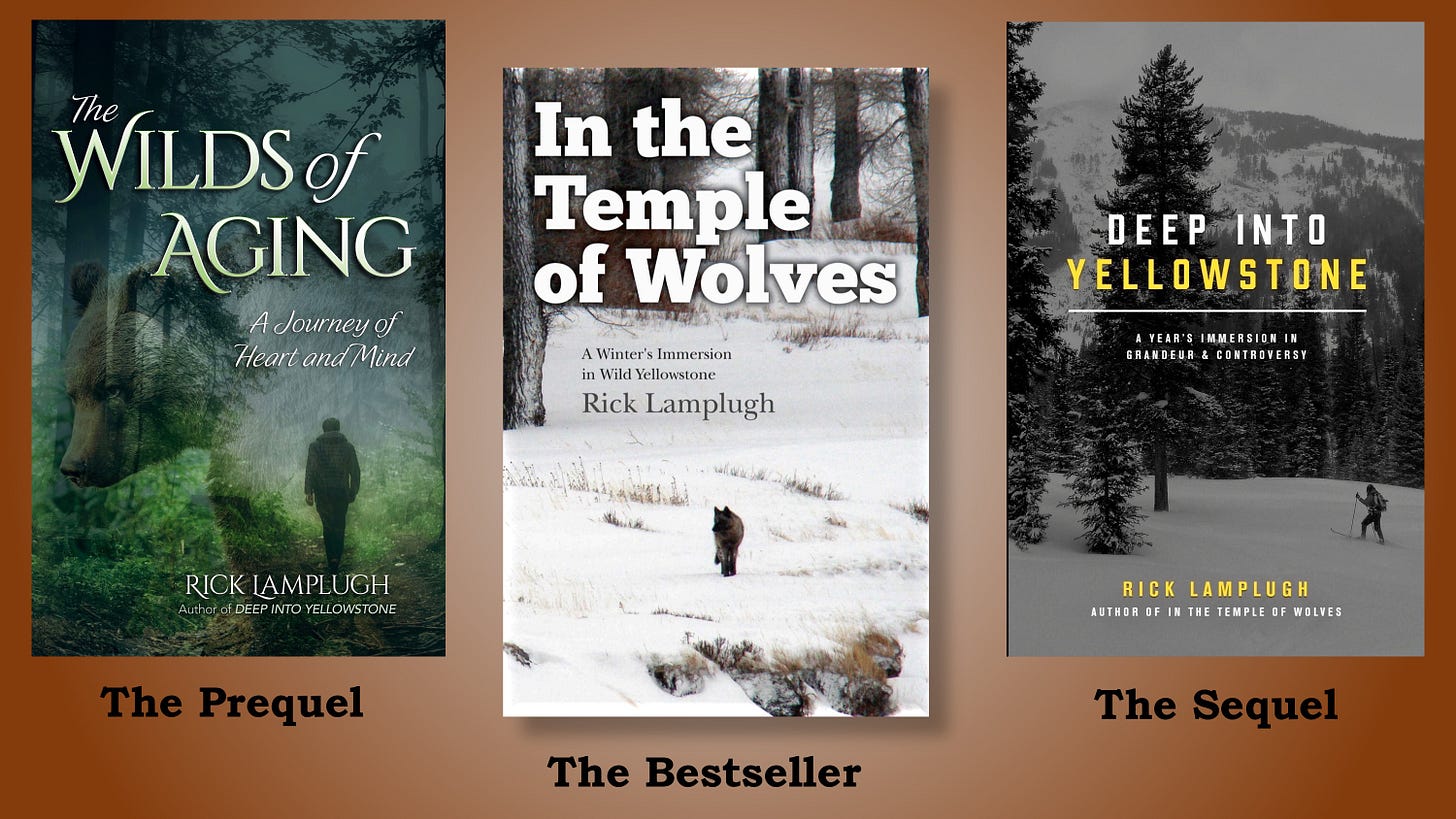I faced many scary unknowns as I journeyed into the wilds of cancer. I didn’t know where this trail would lead, how difficult it would be, or how long we would be on it. I knew Mary would help me face my fears; she would support me as I would support her. But I didn’t want her to carry all the burden. I wanted to find others to help me, to hold my emotional hand.
I figured a good starting point would be to seek out, talk with, and learn from survivors of prostate cancer and other life-changing illnesses. How did they deal with their emotional challenges? How did they find support?
My first conversation was a phone call with a friend who had dealt with Parkinson’s disease for years. I told her about my cancer diagnosis, the shock, the denial. She recalled feeling both after her diagnosis. We talked more, and she later sent me an email detailing her experience.
Overwhelmed with feelings of shock, denial, and grief, sharing the news about my diagnosis felt like a daunting task. I told my immediate family right away but held off telling others. I wanted to first come to terms with having Parkinson’s, so I would feel less vulnerable to the reactions of others. I also didn’t want to be defined primarily as a person with Parkinson’s. And finally, I didn’t want to be discriminated against—viewed as less able to contribute at work, for example—because I had Parkinson’s. Eventually, I started telling others on a need-to-know basis. Looking back, I see that telling others made the diagnosis real, forcing me to move past my denial.
I had mixed reactions from people I told and an aha moment. Some made unhelpful comments. “That’s terrible.” “My uncle died of Parkinson’s.”
But the conversation shifted when one friend asked, “What is that like for you?” I felt completely supported and benefitted from sharing what living with the disease meant.
Reading her email, I hoped I would find people who asked questions like that. I also wondered, for the first time, if my having cancer would change how people saw me. Would I be seen as less able to contribute? Another fear.
I also thought about denial and its place in dealing with the grief of facing a life-threatening illness. Denial is understandable, even predictable, according to the late author and psychiatrist Elisabeth Kübler-Ross. She described five stages of grief: denial, anger, bargaining, depression, and acceptance.
I first learned of these stages after her book, On Death and Dying, was published years ago. I studied them along the way to receiving a bachelor’s degree with a concentration in psychology. The validity of these stages has withstood the test of time with slight modifications. Today’s view is that the stages need not happen in a strict order, and not every grieving person will experience all five.
I entered denial immediately. I didn’t want to repeat to my hiking partners the diagnosis the doctor had given in that phone call I received while we were hiking in the National Forest. Repeating the diagnosis would make it real. For weeks afterward, the reality of having cancer would pop into my head. I would stop whatever I was doing and mutter, “This can’t be happening to me.” More denial.
I added anger: “Damn it, this isn’t fair! Why do I have cancer? I don’t want to face my mortality again!” I struggled to journal and speak that potentially damaging anger out of my body. Sometimes, the visits to my paper therapist succeeded. At other times, the anger remained, and I had to be careful not to dump it on Mary or some other innocent bystander.
I bargained for a better outcome, proclaiming, “OK, so I’ve got cancer. But if I do everything I can to help my body, I’ll survive. Won’t I?” While my desire to do everything was real, I didn’t know how to help my body, mind, or heart. I hadn’t even chosen a treatment. I had little to bargain with.
I feared I might dip into dark depression and suffer in sadness as my body and life changed. I might be brought low by the reality that I wouldn’t live to see our kids hit mid-life or our granddaughter enter adulthood. What could I do to avoid or fight depression?
On better days, I hoped I would live to eventually accept whatever reality prostate cancer created. I would tell myself and others, “OK, I’ve got prostate cancer. Now it’s time to get on with life, to accept this new reality of good days, bad days, dark days, light days.” But I didn’t know when—or if—that would happen.
Understanding the stages of grief was one thing. Living through them was another. Along with journaling and honest sharing with Mary, I knew I needed to seek others to hold my emotional hand. That search would become an important part of this journey into the wilds of cancer.
P.S. If you found this post helpful, would you please consider restacking it and sharing it with your audience?
To catch up or continue…
Click the button to subscribe for free. I hope you join me on this journey, and I welcome your comments and feedback.
For stories of moments Mary and I have shared in wild lands and with wildlife, check out my previous books. In the Temple of Wolves is a bestseller with over 500 five-star reviews on Amazon. Deep into Yellowstone is the sequel and won a Gold Medal in the Independent Publisher Book Awards. The Wilds of Aging, the prequel and winner of a National Indie Excellence Award, takes you on a journey with me into wild lands and aging. Click on a title above for a signed copy from me, or visit Amazon for unsigned paperback copies, ebooks, and audio CDs.
Disclaimer
I’m a writer, not a doctor. I’m very qualified to write stories about my journey. I’m not qualified to give—nor am I giving—medical advice. As these stories show, Mary and I came up with many approaches to deal with my cancer. We always ran our ideas by our medical team to see how the approaches fit medically. Everybody’s body is different. What worked for me may not work for someone else. If something in these stories generates an idea of an approach that you or someone you know might use, first consult with the medical team.




OK , Rick I have been a Fan of yours for many years now . I do not want to bring my problems to you , as I know what I am feeling and what you probably are also . My experience with this is on going and if you want to talk - is fine ! I want you to know that I have a ton of respect for you and admire what you have accomplished . And still are sir! I have a lot I could say but will leave you with simply this . I try to accept what is, that I can not change ! And have the courage to try to change what is, If I possibly can ! I am not sure where to put my email address for you if you want it ?
You will always have my support. I will try not bringing my struggles with depression into your dealing with grief. You seem to be doing a remarkable job.